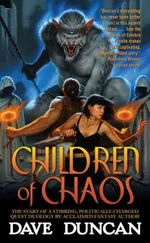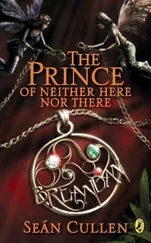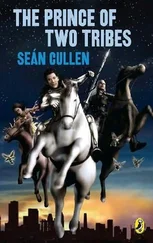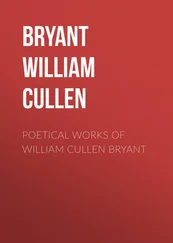Dr. Fuselier had the advantage of reading Eric’s journal from start to finish. Without the holes, the thrust was obvious: humans meant nothing; Eric was superior and determined to prove it. Watching us suffer would be enjoyable. Every week he devised colorful new scenarios: crashing planes into buildings, igniting blocks of skyscrapers, ejecting people into outer space. But the objective never wavered: kill as many as possible, as dramatically as imaginable.
In a perfect world, Eric would extinguish the species. Eric was a practical kid, though. The planet was beyond him; even a block of Denver high-rises was out of reach. But he could pull off a high school.
____
A high school was pragmatic, but the choice was not arbitrary. If jocks had been his target, he would not just have hit the gym. He could have killed the few thousand packing the bleachers at a Columbine football game. If he’d been after the social elites, he could have taken out prom just three days before. Eric attacked the symbol of his oppression: the robot factory and the hub of adolescent existence.
For Eric, Columbine was a performance. Homicidal art. He actually referred to his audience in his journal: “the majority of the audience wont even understand my motives,” he complained. He scripted Columbine as made-for-TV murder, and his chief concern was that we would be too stupid to see the point. Fear was Eric’s ultimate weapon. He wanted to maximize the terror. He didn’t want kids to fear isolated events like a sporting event or a dance; he wanted them to fear their daily lives. It worked. Parents across the country were afraid to send their kids to school.
Eric didn’t have the political agenda of a terrorist, but he had adopted terrorist tactics. Sociology professor Mark Juergensmeyer identified the central characteristic of terrorism as “performance violence.” Terrorists design events “to be spectacular in their viciousness and awesome in their destructive power. Such instances of exaggerated violence are constructed events: they are mind-numbing, mesmerizing theater.”
The audience—for Timothy McVeigh, Eric Harris, or the Palestine Liberation Organization—was always miles away, watching on TV. Terrorists rarely settle for just shooting; that limits the damage to individuals. They prefer to blow up things—buildings, usually, and the smart ones choose carefully.
“During that brief dramatic moment when a terrorist act levels a building or damages some entity that a society regards as central to its existence, the perpetrators of the act assert that they—and not the secular government—have ultimate control over that entity and its centrality,” Juergensmeyer wrote. He pointed out that during the same day as the first attack on the World Trade Center, in 1993, a deadlier attack was leveled against a coffee shop in Cairo. The attacks were presumably coordinated by the same group. The body count was worse in Egypt, yet the explosion was barely reported outside that country. “A coffeehouse is not the World Trade Center,” he explained.
Most terrorists target symbols of the system they abhor—generally, iconic government buildings. Eric followed the same logic. He understood that the cornerstone of his plan was the explosives. When all his bombs fizzled, everything about his attack was misread. He didn’t just fail to top Timothy McVeigh’s record—he wasn’t even recognized for trying. He was never categorized with his peer group. We lumped him in with the pathetic loners who shot people.
____
Eric miscalculated again. It was about drinking this time. He and Dylan talked a friend’s mom into buying lots of liquor. She took requests. Eric ordered tequila and Baileys Irish Cream. Dylan asked for vodka, of course. There was also beer, whiskey, schnapps, and Scotch. The group had a little boozefest that weekend. Eric made off with the leftovers and stashed them in the spare-tire compartment of his car. He was pretty proud of himself. He had all the booze he needed for a long time. He bought himself a flask and loaded it up with smooth, potent Scotch. Eric didn’t actually like alcohol, but he loved the idea. He took only three sips in the month he owned the flask, but he could sip Scotch whenever he wanted—how cool was that? He got a little cocky and bragged to a friend. The jerk ratted him out to Eric’s dad.
There was one hell of a fight at the Harris house that night. Wayne was livid. When are you going to get on track? What are you going to do with your life?
Eric spun a fresh batch of lies. He had been keeping up his grades just to maintain his cover story, setting the stage for a fresh round of bullshit. Man, he was good that night. He even quoted lines out of his favorite movies and delivered them like he was totally in the moment. “I should have won a freaking Oscar,” he wrote in his journal.
Despite the fighting, Eric convinced his Diversion officer that everything was great with his parents. Kriegshauser noted the happy home life in his notes for every session from that period. Eric had an instinct for when the truth would placate an adult, how much to reveal, and to whom. When he attended anger management class for Diversion, he wrote the required response paper, dutifully sucking up about how helpful it was. In person, he sensed Bob Kriegshauser would respond to a different tack. Eric admitted that the class was a waste of time. Bob was proud of him for coming clean. In his session notes, he praised Eric’s honesty.
Dr. Fuselier found Eric’s paper interesting for another reason. Eric really had learned something from the session. He’d listed the four stages of anger and several triggers: quick breathing, tunnel vision, tightened muscles, and clenched teeth. The triggers served as warning signs or symptoms of anger, Eric wrote. Just the kind of information he could use. Eric was a prodigy at masking his true emotions and simulating the desired effect, but prodigy was a long way from pro. Clarifying tiny giveaways where an expert might see through his act—that kind of data was invaluable. Eric described himself as a sponge, and mimicry of agreeable behavior was his number one skill.
____
Eric’s grades were up, and his teachers were happy. He would end the fall semester with glowing comments on his report card about a positive attitude and cooperation. Dylan was still tanking. On November 3, he brought Kriegshauser another progress report. Calculus was no better, and now he had a D in gym, too. It was just tardiness, he explained.
You will get there on time, meaning not one minute late, Kriegshauser demanded. That better be a passing grade by next session.
By their next session, the grade had dropped to an F. Kriegshauser confronted Dylan on the situation, and Dylan tried to weasel out. There was a pattern, Kriegshauser said. Dylan wasn’t even trying. The comments from his calculus teacher showed a bad attitude. He wasn’t making use of his class time effectively. What was going on there? Dylan said he’d been reading a book in class. Kriegshauser was incredulous. Dylan wasn’t much of a smooth talker. Listen to yourself, Kriegshauser told him. Think about what you’re saying. You are minimizing everything. You’re full of excuses. You sound like you think you’re the victim.
Kriegshauser said there would be consequences if Dylan’s efforts didn’t change. That could include termination. Termination would translate to multiple felony convictions. Dylan could find himself in prison.
____
Eric manufactured three more pipe bombs: the Charlie batch. Then he halted production until December. What he needed was guns. And that was becoming a problem.
Eric had been looking into the Brady Bill. Congress had passed the law restricting the purchase of most popular semiautomatic machine guns in 1993. A federal system of instant background checks would soon go into effect. Eric was going to have a hard time getting around that.
Читать дальше







